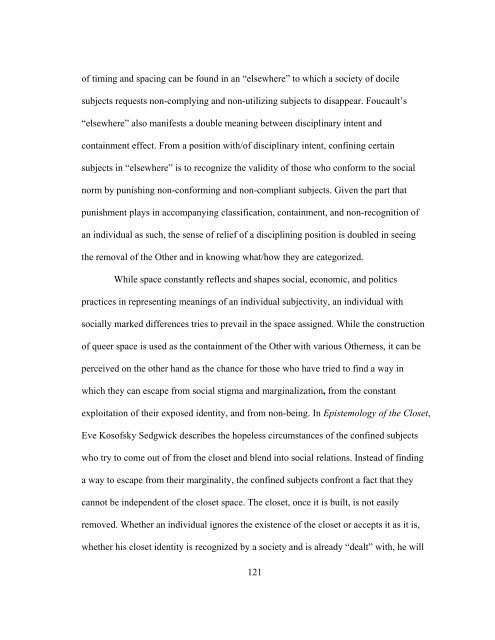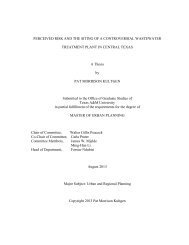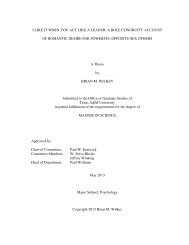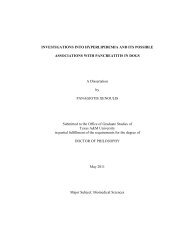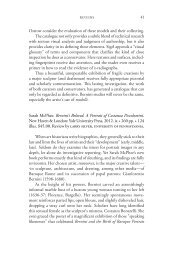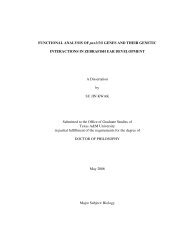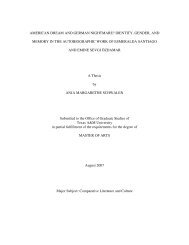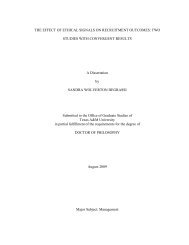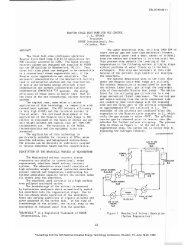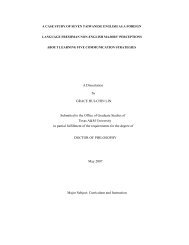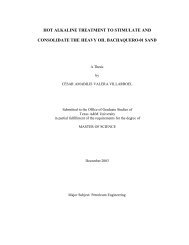CENTURY LITERATURE A Dissertation by JUNG SUN ... - Repository
CENTURY LITERATURE A Dissertation by JUNG SUN ... - Repository
CENTURY LITERATURE A Dissertation by JUNG SUN ... - Repository
You also want an ePaper? Increase the reach of your titles
YUMPU automatically turns print PDFs into web optimized ePapers that Google loves.
of timing and spacing can be found in an “elsewhere” to which a society of docile<br />
subjects requests non-complying and non-utilizing subjects to disappear. Foucault’s<br />
“elsewhere” also manifests a double meaning between disciplinary intent and<br />
containment effect. From a position with/of disciplinary intent, confining certain<br />
subjects in “elsewhere” is to recognize the validity of those who conform to the social<br />
norm <strong>by</strong> punishing non-conforming and non-compliant subjects. Given the part that<br />
punishment plays in accompanying classification, containment, and non-recognition of<br />
an individual as such, the sense of relief of a disciplining position is doubled in seeing<br />
the removal of the Other and in knowing what/how they are categorized.<br />
While space constantly reflects and shapes social, economic, and politics<br />
practices in representing meanings of an individual subjectivity, an individual with<br />
socially marked differences tries to prevail in the space assigned. While the construction<br />
of queer space is used as the containment of the Other with various Otherness, it can be<br />
perceived on the other hand as the chance for those who have tried to find a way in<br />
which they can escape from social stigma and marginalization, from the constant<br />
exploitation of their exposed identity, and from non-being. In Epistemology of the Closet,<br />
Eve Kosofsky Sedgwick describes the hopeless circumstances of the confined subjects<br />
who try to come out of from the closet and blend into social relations. Instead of finding<br />
a way to escape from their marginality, the confined subjects confront a fact that they<br />
cannot be independent of the closet space. The closet, once it is built, is not easily<br />
removed. Whether an individual ignores the existence of the closet or accepts it as it is,<br />
whether his closet identity is recognized <strong>by</strong> a society and is already “dealt” with, he will<br />
121


